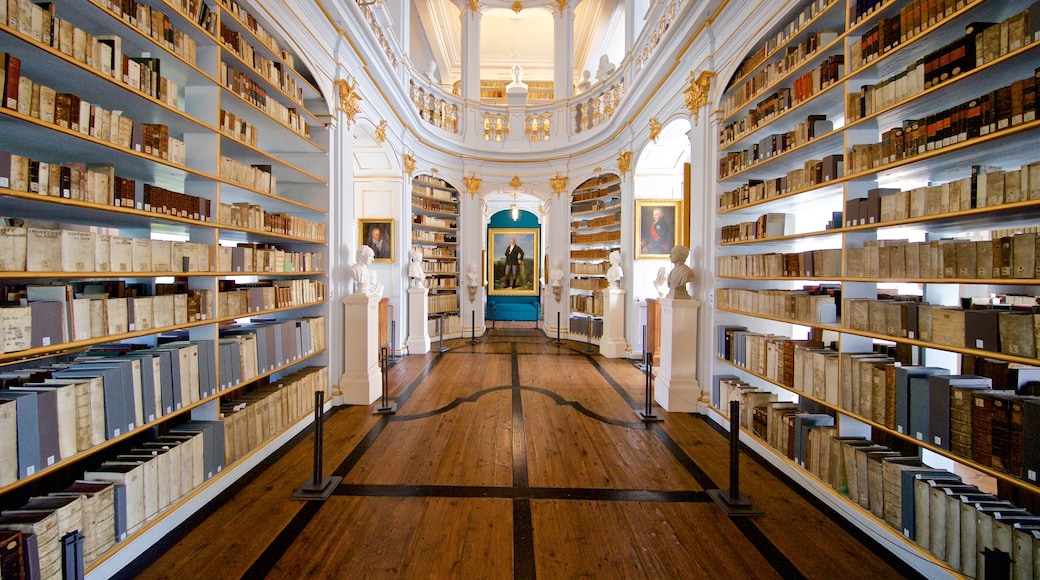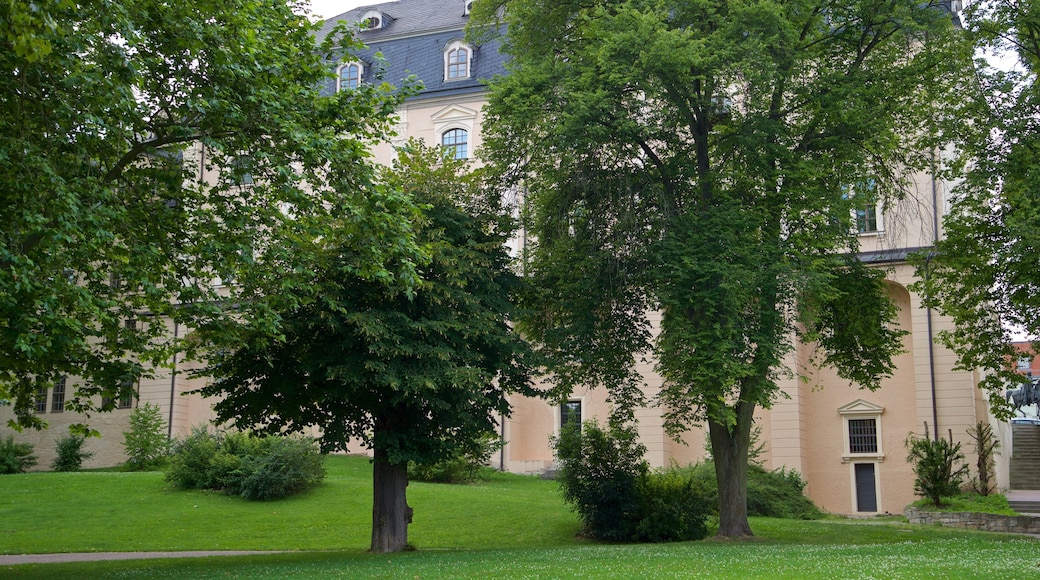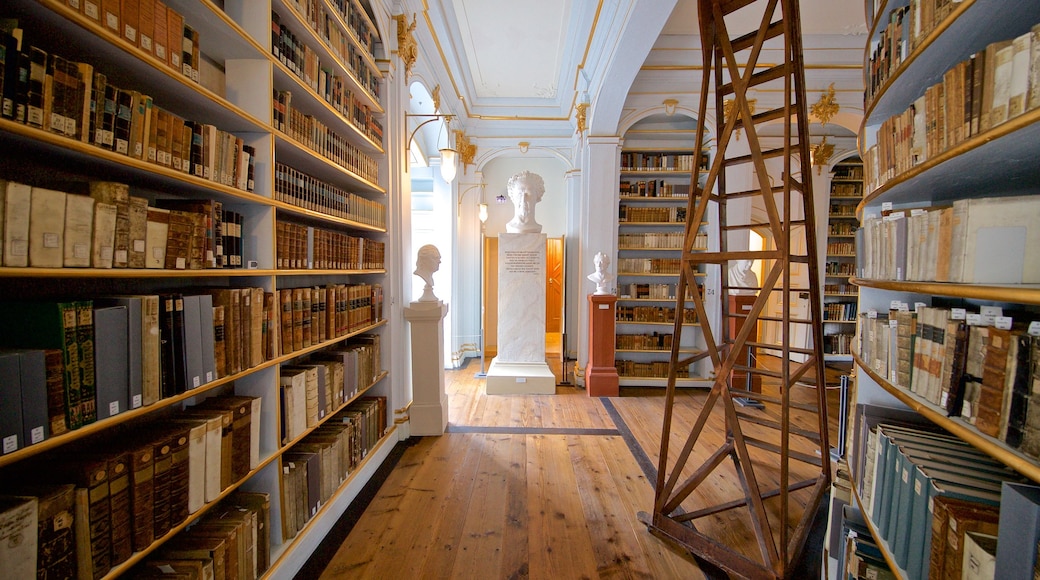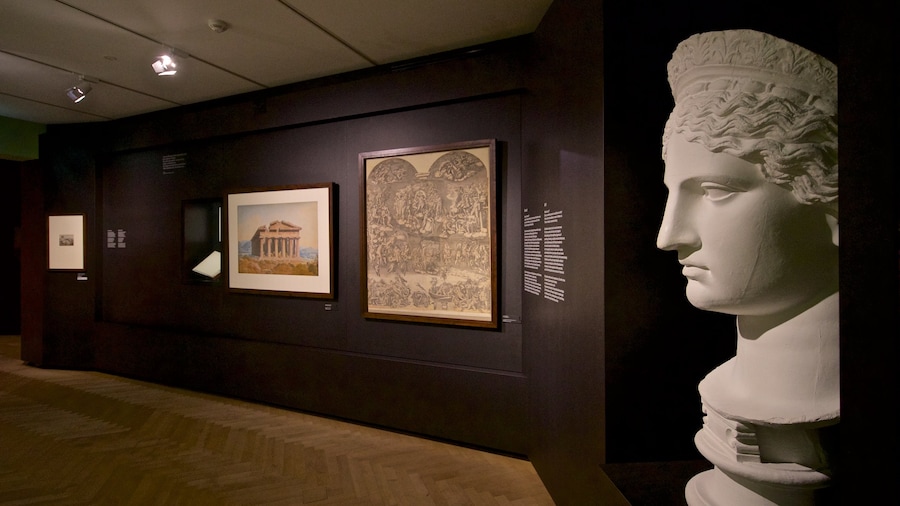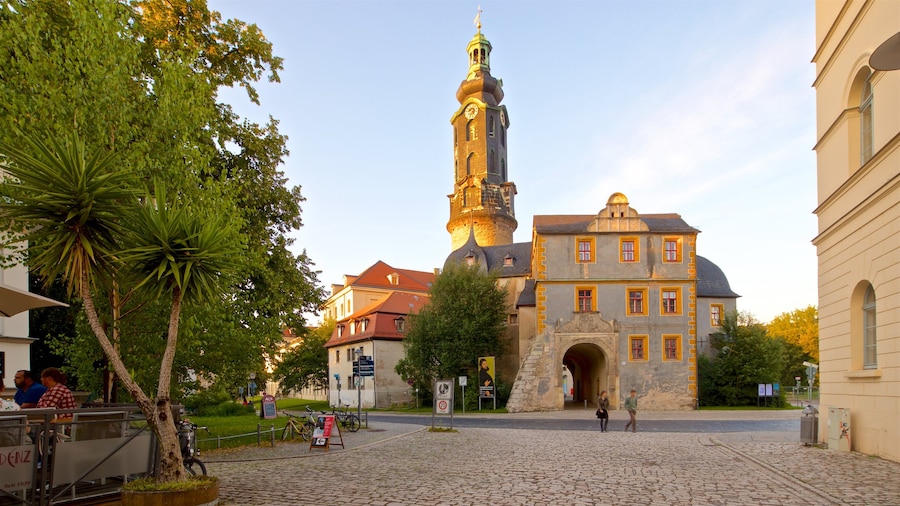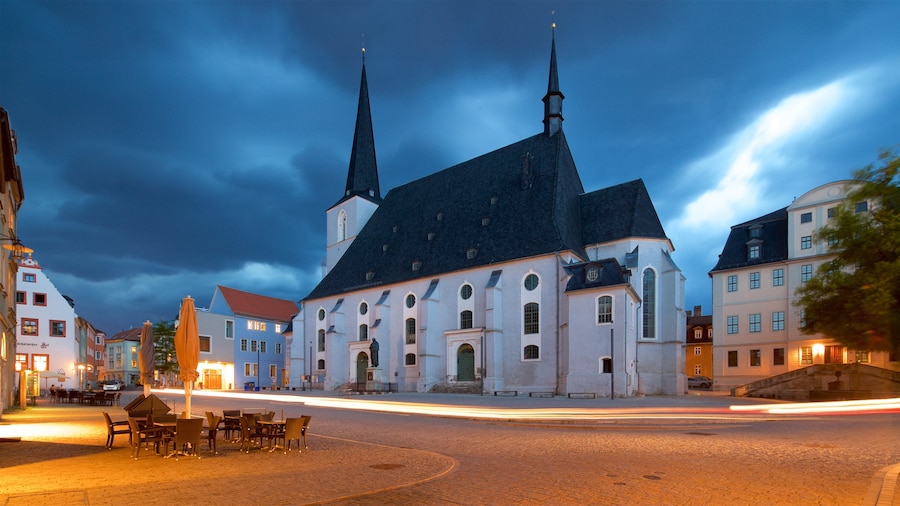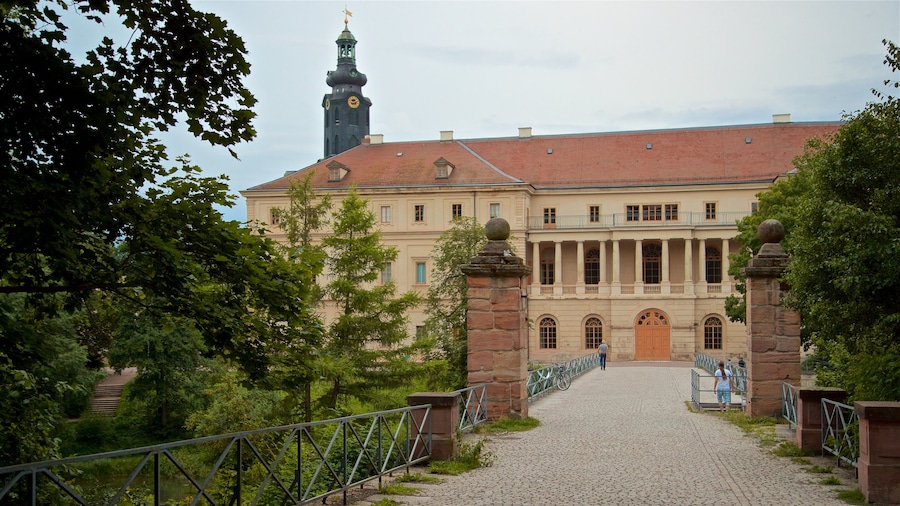Part of the UNESCO-listed Classical Weimar collection of sites, the Duchess Anna Amalia Library serves as a monument to 18th-century Weimar, when the city was a flourishing cultural hub. Admire the meticulously reconstructed Rococo-style hall and learn about the precious library collection, which includes early edition tomes from literary giants such as Goethe.
Read about the fascinating and tragic history of the library. The library is named after the 18th-century duchess of Saxony-Weimar who came up with the idea of using the royal court’s book collection to form the basis of a new library. Duchess Anna Amalia ordered that part of the 17th-century royal palace, known as the Grünes Schloss (Green Castle), be converted to form the library.
Listen to the audio guide commentary to find out more about the evolution of the library, which now serves as a research institution, as well as the setbacks that influenced its growth. Of all the chapter’s in the libraries history, none was as devastating as the fire that struck the building in 2004. The fire caused millions of euros worth of damage and destroyed tens of thousands of books.
The library’s collection has a strong focus on German literature dating back to between 1750 and 1850. Ask a guide to tell you about the most notable texts. Among the most prized books in its collection is a selection of Faust editions by Johann Wolfgang Goethe, who at one point served as a director of the library. The library also contains a 1534 Bible with a connection to Martin Luther. The bible, as well as a sizable Shakespeare collection, was dramatically saved from the devastating 2004 fire by firefighters and local residents.
Don’t miss the famed Rococo Hall, an elegant reading room decorated with busts of writers, paintings and bookshelves. This room is the architectural highlight of the library and holds many of its most treasured volumes.
Duchess Anna Amalia Library is beside Park on the Ilm, at the boundary of Weimar’s old town. The library is open every day except Monday. Only 290 people are allowed to visit the library daily, so book ahead to ensure you get a ticket.
